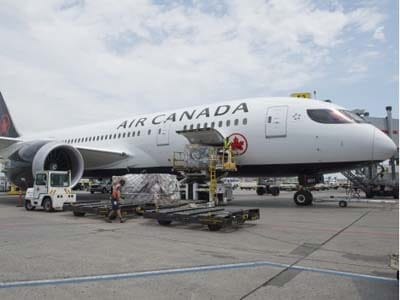- By Della tj
- October 14, 2025
- Sea Freight
Shipping bags from China to the UK by sea is one of the most economical options for large-volume importers. The bags sea freight China to UK route offers cost savings, consistent delivery schedules, and flexible container options. However, importers often struggle with choosing between LCL, FCL, and express sea services, as well as understanding customs, packaging, and total logistics cost.
Why Choose Sea Freight for Bags from China to the UK?
Businesses dealing with bulk bag shipments often prioritize affordability over speed. Sea freight enables them to transport thousands of units at a fraction of the air freight cost. Moreover, it allows for the safe movement of leather, fabric, or synthetic bags without weight restrictions.
| Shipping Method | Cost (USD/kg) | Transit Time (Days) | Best For |
|---|---|---|---|
| Air Freight | 6–10 | 3–7 | Small, urgent orders |
| Sea Freight (FCL) | 0.3–0.7 | 30–40 | Bulk shipments |
| Sea Freight (LCL) | 0.6–1.2 | 35–45 | Medium loads |
| Rail Freight | 1.2–1.8 | 18–25 | High-value goods |
Accordingly, sea freight is ideal for wholesalers and eCommerce brands sourcing handbags, travel bags, or backpacks in large quantities.
How Does the Sea Freight Process Work for Bags?
The journey from Chinese factories to UK warehouses involves several stages. First, your supplier sends goods to the port—usually Shanghai, Shenzhen, or Ningbo. Then, freight forwarders handle customs clearance, vessel booking, and loading. Upon arrival in the UK (typically Felixstowe, Southampton, or London Gateway), goods go through import clearance before delivery to the destination.
Main Stages:
- Supplier production and packaging
- Inland transport to Chinese port
- Export customs declaration
- Ocean voyage to UK port
- Import customs clearance
- Local delivery to warehouse
Indeed, coordinating each step ensures on-time delivery and minimal risk of delays.
What Are the Main Ports and Routes for Bags Sea Freight China to UK?
Although many ports operate across China, three hubs dominate bag exports:
- Shanghai Port – Largest capacity, excellent route to Southampton.
- Ningbo Port – Cost-effective and efficient for Zhejiang manufacturers.
- Shenzhen Port – Ideal for South China suppliers near Guangzhou and Hong Kong.
| Port of Origin (China) | Destination (UK) | Average Transit Time (Days) | Common Shipping Lines |
|---|---|---|---|
| Shanghai | Southampton | 30–33 | COSCO, Maersk |
| Ningbo | Felixstowe | 32–36 | Evergreen, CMA CGM |
| Shenzhen | London Gateway | 34–38 | MSC, OOCL |
On the other hand, choosing the right route depends on your warehouse location and delivery timeline.

How Much Does Sea Freight Cost for Bags from China to the UK?
Sea freight pricing fluctuates due to fuel surcharges, seasonality, and container space demand. Below is a general rate overview for 2025.
| Container Type | Capacity | Estimated Freight Rate (USD) | Bags Volume (Units) |
|---|---|---|---|
| 20FT FCL | 33 CBM | 1,500 – 2,200 | 6,000 – 9,000 |
| 40FT FCL | 67 CBM | 2,400 – 3,800 | 12,000 – 18,000 |
| LCL (per CBM) | 1 CBM | 60 – 90 | 150 – 250 |
Additionally, importers should include customs duty (2–8%), VAT (20%), and destination handling charges when calculating total landed costs.
Real Shipping Case Studies
Case 1:
Route: Guangzhou → Felixstowe
Goods: PU handbags (1,000 units, 8 CBM)
Mode: LCL Sea Freight
Cost: USD 850 total
Transit Time: 39 days
Result: Bags arrived safely, customs cleared in 2 days with DDP terms.
Case 2:
Route: Ningbo → Southampton
Goods: Canvas tote bags (10,000 units, 40FT FCL)
Cost: USD 2,900
Transit Time: 33 days
Result: Shipment handled by Maersk, delivered to UK retailer within 36 days total.
What Documents Are Needed for Bags Sea Freight China to UK?
Accurate documentation avoids customs delays and penalties. The following checklist summarizes all essential paperwork:
| Document | Purpose |
|---|---|
| Bill of Lading (B/L) | Proof of shipment and ownership |
| Commercial Invoice | Declares value for customs |
| Packing List | Details product type and quantity |
| Certificate of Origin | Confirms manufacturing country |
| Import License (if needed) | Required for some branded goods |
| Insurance Certificate | Protects against loss or damage |
Moreover, double-check that declared values and HS codes match between all documents to prevent inspection delays.

How to Reduce Transit Time and Cost When Shipping Bags?
To illustrate, importers can optimize their logistics strategy by following these methods:
- Book Early: Secure space 3–4 weeks in advance.
- Use FCL for Bulk: Full containers reduce per-unit cost.
- Consolidate Orders: Combine small batches into LCL shipments.
- Choose Efficient Ports: Shorter routes lower costs.
- Automate Documentation: Digital customs tools minimize delays.
As a result, you’ll achieve balance between affordability and timely delivery without sacrificing quality.
Air vs. Sea Freight: Which Is Better for Bags?
| Factor | Air Freight | Sea Freight |
|---|---|---|
| Speed | 3–7 days | 30–40 days |
| Cost | High | Low |
| Cargo Volume | Limited | Large |
| Environmental Impact | High | Lower |
| Ideal For | Urgent shipments | Bulk imports |
Without a doubt, sea freight offers unbeatable value for large-scale bag importers who prioritize cost-efficiency over speed.
Conclusion
Shipping bags from China to the UK via sea freight remains the most affordable and reliable method for large importers. With proper documentation, efficient route selection, and cooperation with trusted logistics partners, businesses can reduce transit time and costs. Ultimately, the bags sea freight China to UK route continues to offer long-term value and sustainability for global bag supply chains.
- Consult TJ China Freight Forwarding for the lowest quote. They will provide you with reliable, cost-effective service.
FAQs
Q1.How can I calculate container space for bags sea freight China to UK?
Use cubic meter measurement (CBM) based on bag size, packaging, and pallet count to calculate required sea freight container space.
Q2.What’s the best time of year to book sea freight for bags?
Book shipments at least one month before China’s export peak season, typically before the Lunar New Year or Golden Week.
Q3.Do I need special packaging for leather or luxury bags during sea freight?
Yes. Use moisture-resistant inner liners and reinforced cartons to protect premium leather bags from humidity during long ocean transit.
Q4.Can I combine bag shipments with other goods to save on freight cost?
Absolutely. Many freight forwarders offer cargo consolidation services allowing small bag shipments to share container space and reduce cost.
Q5.What’s the difference between FOB and CIF terms for bags shipping from China?
FOB covers delivery to the port only, while CIF includes sea freight, insurance, and delivery to the UK destination port.



